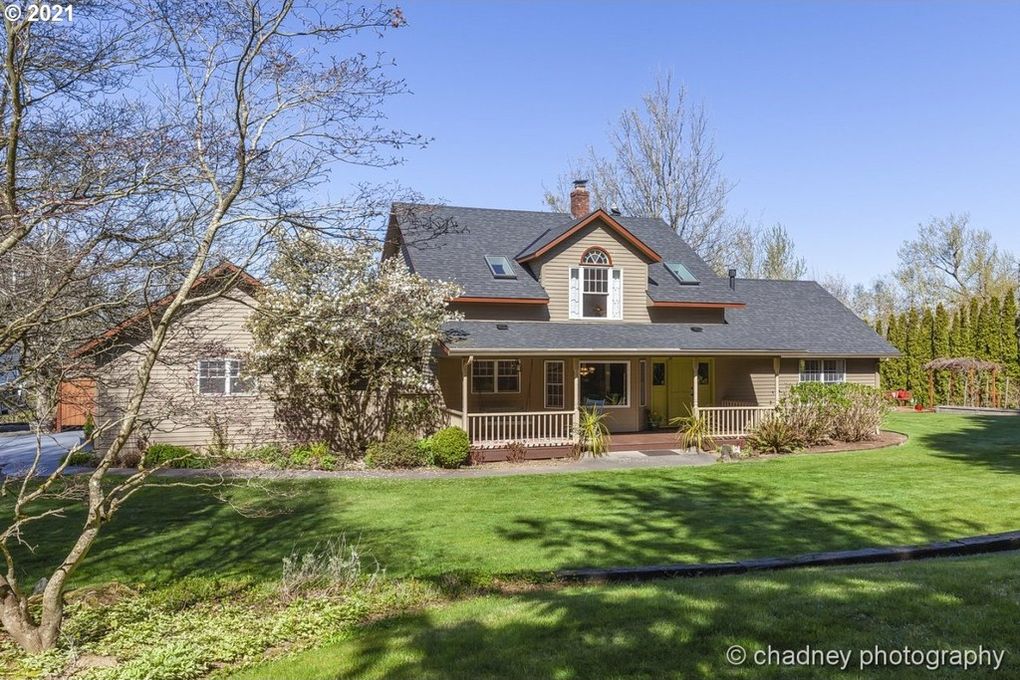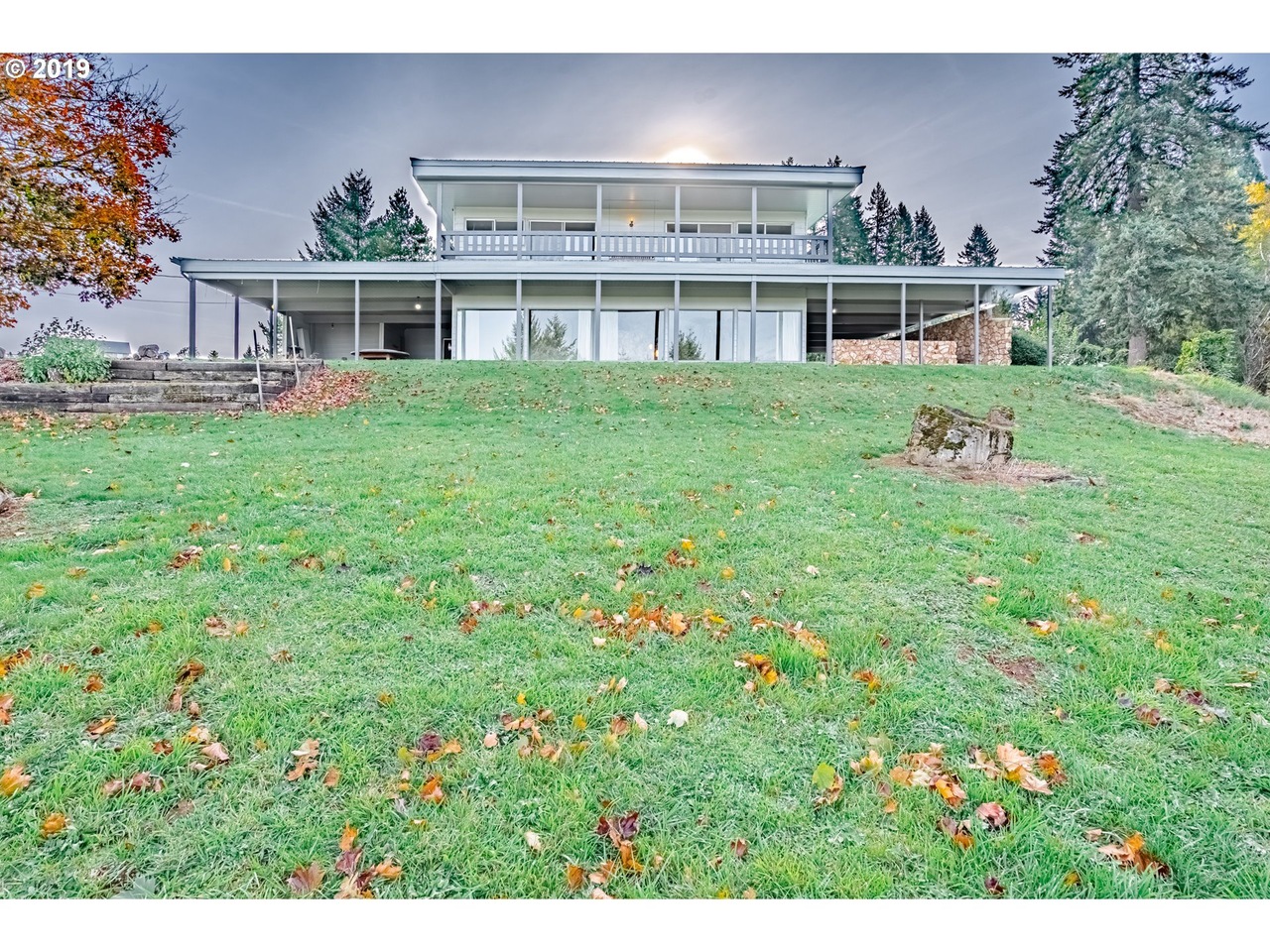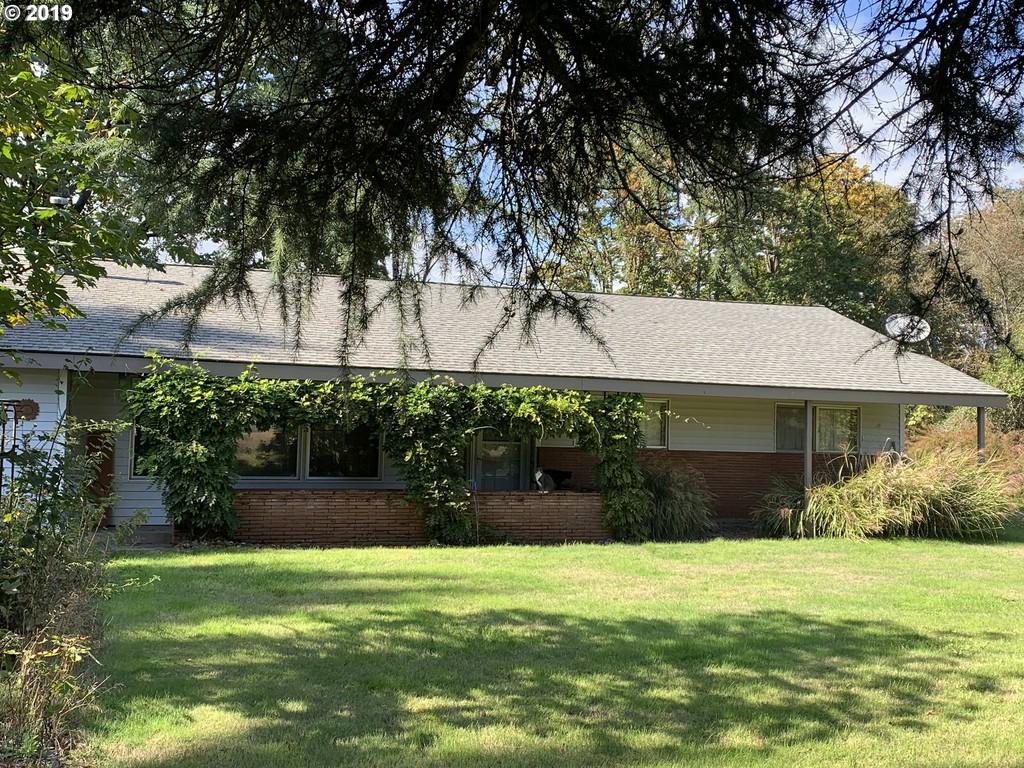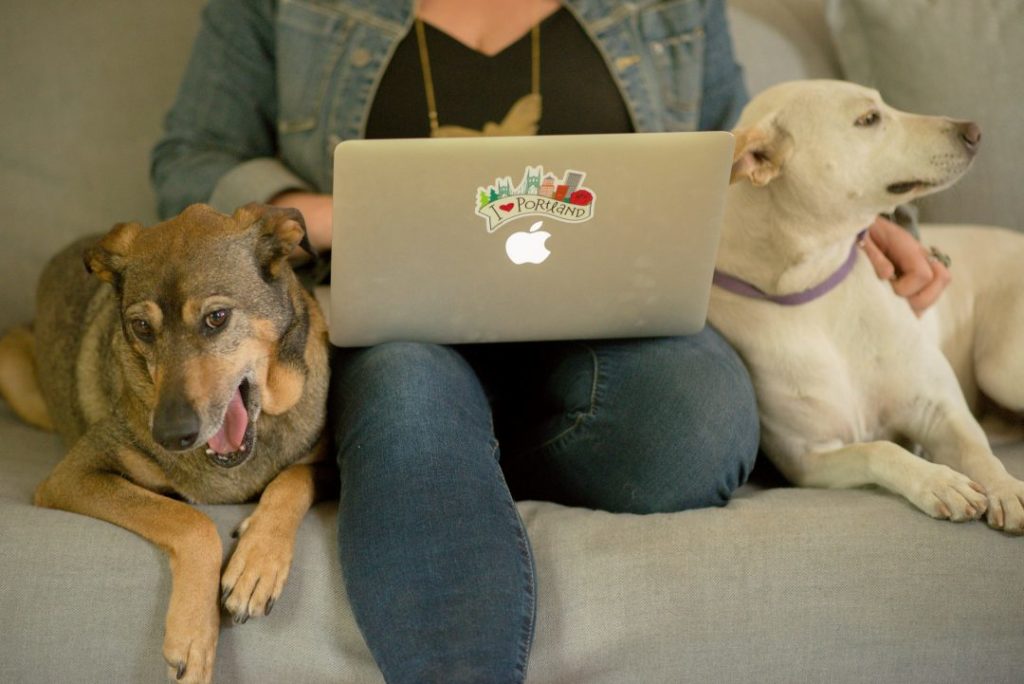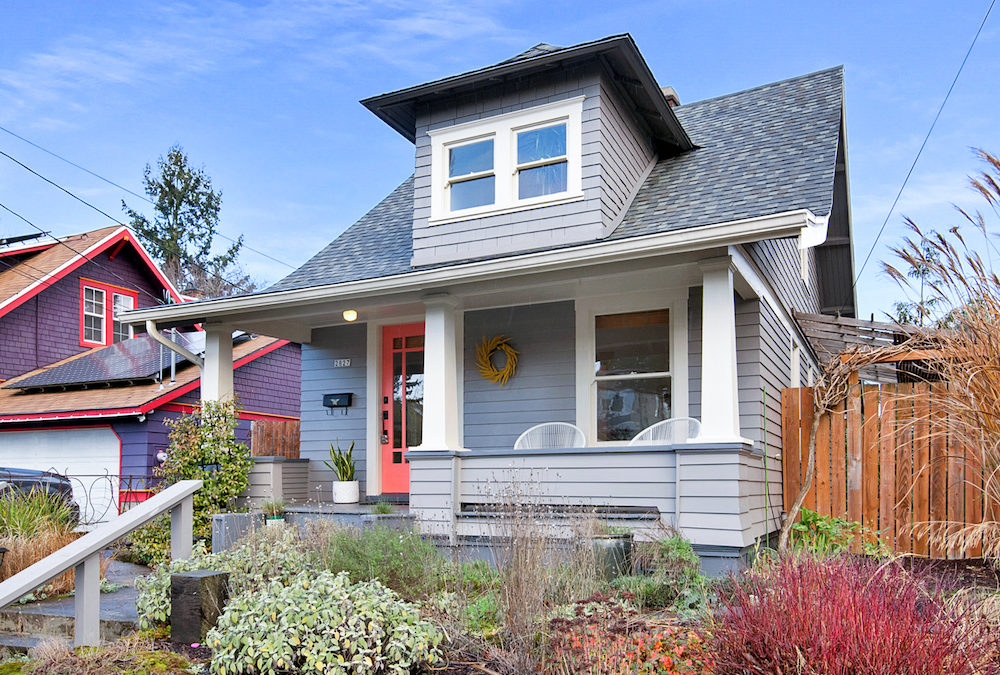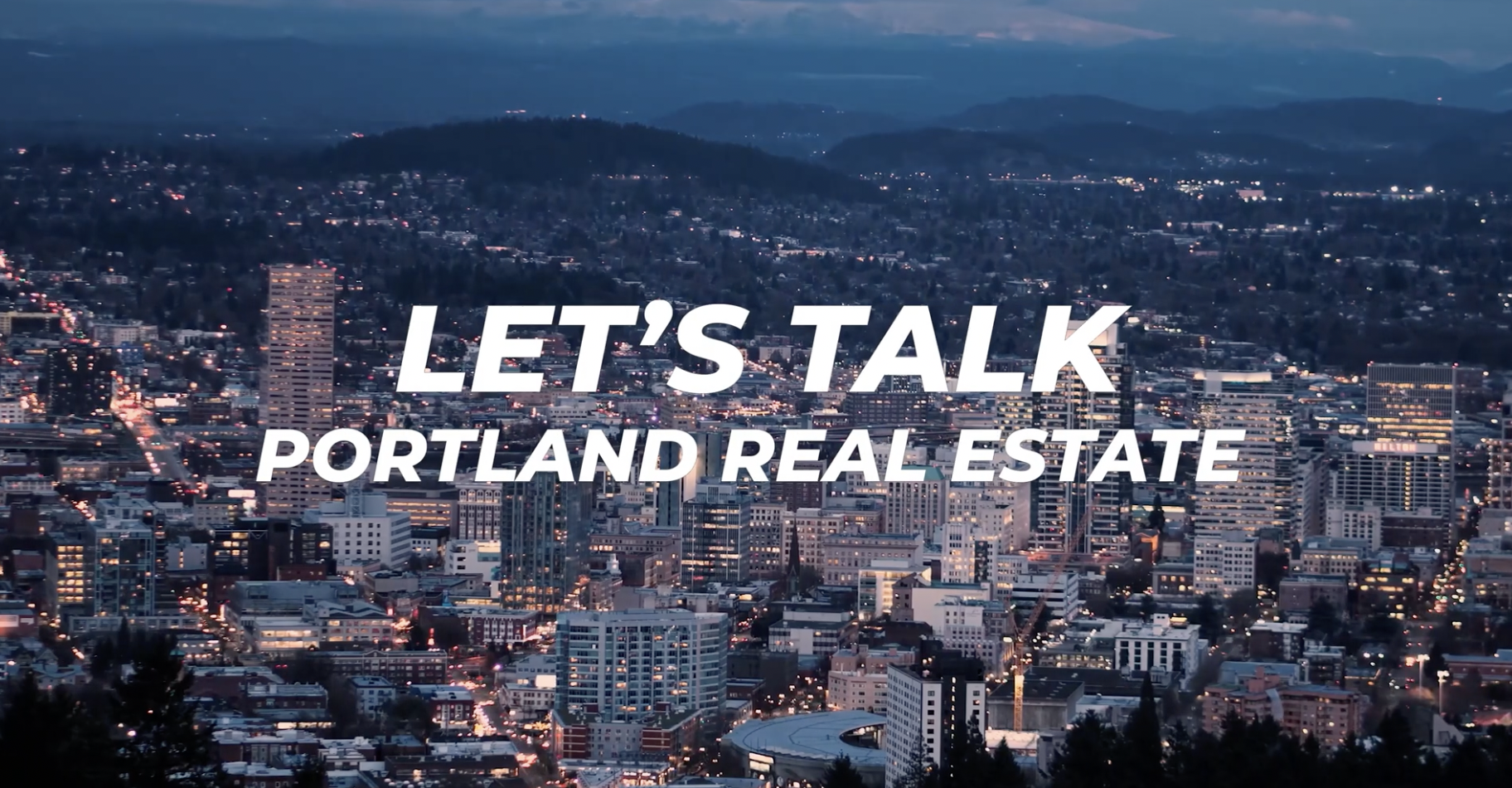
Things Other Realtors Won’t Tell You with Portland Real Estate Agent Lauren Goché
Every year, Portland Real Estate Agent Lauren Goché works with dozens of buyer clients. She knows what she’s talking about when it comes to navigating Portland’s real estate market!
In this video, Lauren drops some smart + savvy real estate knowledge about buying a home in Portland that maaaaybe other real estate agents aren’t telling you. Get ready for some real talk!
Takeaways from the video:
If you’re looking at houses and dreaming about buying one… you MUST get a pre-approval ASAP!
This is non-negotiable! And you need this from a good, solid lender. Not all lenders are the same (just like not all REALTORS® are the same) and you must with the cream of the crop. No exceptions!
When it comes to choosing your REALTOR®, you need to work with a specialist.
You deserve to work with someone who LOVES the neighborhoods you’re looking in, and who is an expert in the era of home you’re looking for and/or the architecture you want. You deserve a true expert. In fact, this is so important that if you call me and I’m not that person, I know that person and I’m going to connect you. It’s that important.
You need to trust your real estate agent. Period.
Don’t work with someone you don’t trust. Your REALTOR® should have your best interest at heart, and you need to listen to their advice to be successful.
If you’re buying a home, you shouldn’t have to offer on ten different homes.
You might hear crazy stories about how buyers had to offer on a dozen homes before they finally won, and this just shouldn’t be happening. You should only be making offers on things that you really have a chance of winning.
Your relationship with your REALTOR® should last beyond your transaction.
Who do you call when you need a plumber because your water main broke?! Your real estate agent is going to be with you past closing. They’re there to give you great references for contractors and advice, so this is really someone you should LIKE and TRUST! This can be (and really should be) a beautiful, long-term relationship!
***
It is really, really tough for buyers out in Portland right now. A really good REALTOR® who you love and trust is going to smooth that pathway for you and make it as easy and humanly possible to buy a home.
I’d love to help you buy a home in Portland. Let’s chat about what you’re looking for—get in touch with me here!
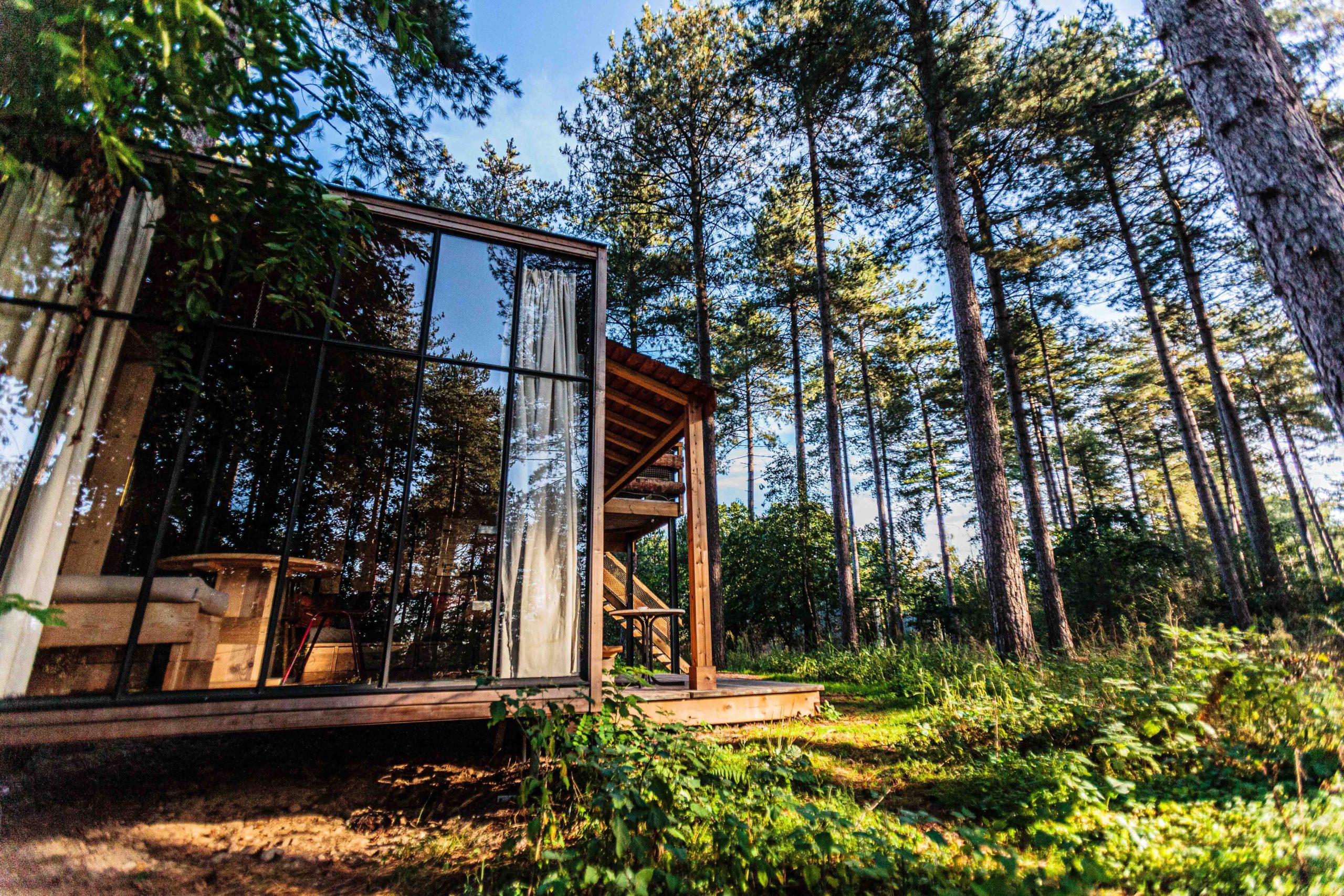
Where to Buy a House in the Portland Suburbs When You Want Land
Right now in the Portland area (and really in most cities) we’re seeing a major trend of people wanting a home with more space both inside and out. Of course, this is largely due to the pandemic and staying home so often. If you need to stay close to Portland but you want to find a home with more space, you’ll likely need to move out of the city and live in one of Portland’s suburbs.
Portland Real Estate Agent Lauren Goché has been hearing this from clients pretty much weekly since the pandemic began: People are moving to Portland but don’t want to be IN Portland. They want to be within a 45-minute commute to Portland. They also want to have 1-2 acres with maybe a cabin, and/or the possibility for multi-generational living. (In addition to the conditions the COVID-19 pandemic has created, Boomers are aging and many Gen Xers are wanting to house their aging parents.)
If you want more land in the Portland area, look in areas around Mt. Hood. Below, you’ll find recommendations on areas to look for properties where you can own more land.
But before we dive into all of that, a quick warning!
A lot of the time, Lauren will have her real estate clients get really excited about a cute cabin they found in the Mount Hood area, and it’ll be really (surprisingly) affordable. And this is likely because the cabin is on leased forestry land. This means that you will only own the cabin, NOT the actual land. It’s like owning a boat but not the water. This is just a bad investment. (If you have a ton of extra money to just toss at something and you’re ok to lose this money down the road then fine, but if you’re scraping it together to buy a property, this is a hard NO from Lauren!) In fact, she knows someone who had their family cabin on leased land for generations, and they lost it because the lease with the Bureau of Land Management ran out. It was devastating.
Ok, back to our scheduled programming. If you’re searching for a property with more land, here are the best areas to look around Mount Hood:
Corbett, Oregon
Corbett is gorgeous but expensive. This community is right on the Columbia River, and it is absolutely gorgeous. Corbett is about a 30-minute drive into the heart of Portland. Learn more about Corbett here.
Here’s an example of a property that recently sold (listing by Team Savvy Lane with Savvy Lane); click here to view all photos, details, & sold price.
Estacada, Oregon
This small city has a really cute little downtown area, and you can live out of the town but still come in and find everything you need. Estacada is about a 40-minute drive into the heart of Portland.
Here’s an example of a property that recently sold in Estacada (listing by Duff Main of RE/MAX Equity Group); click here to view all photos, details, & sold price.
Boring, Oregon
This small community is right in the foothills of the Cascade mountains, and why yes, Boring is home to the North American Bigfoot Center! Boring is also only about 30 minutes into the heart of Portland.
Sandy, Oregon
Sandy is in the foothills of the Cascade mountains, and it’s known as the western gateway to Mount Hood. You can enjoy small town vibes here, but it’s not too small—there’s a Fred Meyer, a movie theater, and tons of other amenities so you don’t have to go far when you need something. Sandy is 37 minutes into the heart of Portland.
Other Areas Outside of Portland Where You Can Find Homes with More Land
Canby, Oregon
Canby is right along the Willamette River and Oregon Route 99E runs right through it, giving an easy option to get into Portland. Canby is about a 30-minute drive into the heart of Portland.
Scappoose, Oregon
Scappoose is northwest of Portland, and right along the Washington border. It’s conveniently on a highway that’ll take you straight into Portland; you can be in Downtown Portland in just 26 minutes.
Here’s an example of a property that recently sold (listing by Debra Parmleye); click here to view all photos, details, & sold price.
Molalla, Oregon
Molalla is south of Portland and this little city is surrounded by farmland. Molalla is a 40-minute drive into the heart of Portland.
Banks, Oregon
Banks, Oregon is west of Portland, and this small community is surrounded by scenic farmland. Banks is only a 25-minute drive to the heart of Portland.
Areas in Washington State Close to Portland Where You Can Find Homes on More Land
Washougal, Washington
Located right across the state line and along the Columbia River, Washougal is a city surrounded by parks and greenspace. Washougal is a 25-minute drive into the heart of Portland.
Camas, Washington
Camas is right in between Washougal and Vancouver and situated along the Columbia River. From Camas you’re just a 25-minute drive into Downtown Portland.
Would you like to learn more about buying a home in the Portland suburbs? Portland Real Estate Agent Lauren Goché is ready to help. Get in touch with her here!

What Are The Best & Worst Things About Portland? Here’s What Locals Said
Recently, I shared a survey about Portland neighborhoods on social media. The survey asked people all kinds of questions about commute times, favorite coffee shops and restaurants, and much more, including what they feel the best and worst thing is about their particular neighborhood.
Some Portland neighborhoods received several responses, while some neighborhoods received one or zero responses (and for the neighborhoods that received zero responses, the neighborhood will not be featured below).
I wanted to share the real, nitty gritty details of what people reported as the worst and best thing about their Portland neighborhoods, and you’ll find a long list of responses below organized by neighborhood in alphabetical order. As you read through everyone’s faves/least faves, keep in mind that any one perspective does not 100% represent a neighborhood—it’s just one person’s point of view.
Arbor Lodge
The Best Things About Arbor Lodge:
- “The convenience to grocery stores, gas stations, shops, restaurants.”
- “Close to I-5 and grocery stores.”
- “I love how close I am to everything. The neighbors act like neighbors, say hello/learn your name.”
The Worst Things About Arbor Lodge:
- “The occasional crime/transient traffic (not necessarily related).”
- “Homeless camps a block away.”
- “There is a pretty active transient/ homeless population so securing your property is very important.”
Ardenwald-Johnson Creek
The Best Things About Ardenwald-Johnson Creek:
- “Being right outside of Portland proper, but still being close to everything!”
- “The community we’ve built with our neighbors.”
The Worst Things About Ardenwald-Johnson Creek:
- “Flaming Confederate flag mailboxes.”
- ”The Trump loving boomers.”
Beaumont-Wilshire
The Best Things About Beaumont-Wilshire:
- “Having two different areas in walking distance with restaurants, bars and shops.”
The Worst Things About Beaumont-Wilshire:
- “Not close to a MAX line and having to take multiple buses to get downtown.”
Brentwood-Darlington
The Best Things About Brentwood-Darlington:
- “Down to earth, kind neighbors, elementary school.”
The Worst Things About Brentwood-Darlington:
- “Substance abuse, homelessness, graffiti.”
Brooklyn
The Best Things About Brooklyn:
- “That I have bars and restaurants within a few blocks, but it also feels like a real neighborhood and also safe.”
The Worst Things About Brooklyn:
- “Depending on where you live in Brooklyn, parking can be tough when there’s a show at the Aladdin.”
Buckman
The Best Things About Buckman:
- “It is so easy to access most parts of Portland by bike or bus.”
- “Easy walking to coffee and shopping and bars.”
- “Location to Portland and local bars.”
- “It’s gorgeous, semi-quiet and green but still bustling and interesting.”
- “It’s in the middle of a lot of well-known and grown neighborhoods without being too heavily populated. I also love the small neighborhood businesses.”
The Worst Things About Buckman:
- “There isn’t a good gym close by.”
- “Nothing.”
- “Transient population.”
- “Traffic, parking, lack of available rentals.”
- “I think this is an issue for many neighborhoods, but trash/litter.”
Centennial
The Best Things About Centennial:
- “Original owners and first time owners mingling, comfy, small-ranch homes with big lots.”
- “The space in my yard; proximity to Powell Butte Nature Park and other nature preserves.”
- “Our neighbors.”
The Worst Things About Centennial:
- “Commute westward… can be slow and side streets are your best friend at times! Big desire and potential for more businesses in the neighborhood so folks don’t need or want to travel in. The Portland Gresham lines merge in this area and folks who once lived closer in but wanted some yard space they could afford would love more options! Hidden/forgotten corner of PDX with many first-time owners and retirees who would love to see more grocery stores, bars, eateries.”
- “Not walkable, no local spots to hang out at, not a huge community feeling outside of the couple of neighbors we’ve befriended the last couple years.”
Concordia
The Best Things About Concordia:
- “Closeness to fernhill and great sidewalks.”
The Worst Things About Concordia:
- “Close to a major highway.”
Creston-Kenilworth
The Best Things About Creston-Kenilworth:
- “Quiet.”
- “It’s not jam packed.”
The Worst Things About Creston-Kenilworth:
- “Too much low income rentals.”
- “It’s eh.”
Cully
The Best Things About Cully:
- “Super rad neighbors.”
- “Fernhill Park.”
- “It’s quiet but welcoming.”
The Worst Things About Cully:
- “Close to 82nd so we get our share of homeless camps.”
- “Traffic noise.”
- “No sidewalks.”
Eastmoreland
The Best Things About Eastmoreland:
- “The secluded feel of being away from the hustle of the city.”
The Worst Things About Eastmoreland:
- “Prices of houses.”
Foster-Powell
The Best Things About Foster-Powell:
- “Old trees, old houses in good condition, family friendly.”
- “Space and trees.”
The Worst Things About Foster-Powell:
- “Rise in homelessness and related crime. Hopefully the additional shelters will help folks have safe places and less desperate times.”
Hazelwood
The Best Things About Hazelwood:
- “Great Midcentury homes.”
The Worst Things About Hazelwood:
- “Crime.”
Hillsdale
The Best Things About Hillsdale:
- “Great local restaurants, many are dog friendly. It is quick for me to get to Beaverton, downtown, and the east side and I have Hillsdale and Multnomah Village to enjoy because they are so close. Feeling of community and acceptance. I love Gabriel Park as well.”
The Worst Things About Hillsdale:
- “Car break ins. It was also one of the last neighborhoods in Portland to get TriMet back after the major ice/snow storm a few years ago.”
Hollywood
The Best Things About Hollywood:
- “The beautiful yards/homes.”
- “Convenient to shopping and downtown.”
- “Inexpensive for how close in we are.”
- “Its location! There’s tons of amazing food and activities close by and it’s easy to get to anywhere else in the city by the close highway on ramp. But it’s also quiet and everyone is super friendly.”
The Worst Things About Hollywood:
- “The bums.”
- “Transient issues the closer you live to the MAX station.”
- “Restaurant options are sparse within walking distance.”
Humboldt
The Best Things About Humboldt:
- “Its location! There’s tons of amazing food and activities close by and it’s easy to get to anywhere else in the city by the close highway on ramp. But it’s also quiet and everyone is super friendly.”
The Worst Things About Humboldt:
- “There’s tons of construction and people selling their houses right now, which makes it harder to have a cohesive neighborhood/community.”
Irvington
The Best Things About Irvington:
- “Sidewalks lined with trees.”
The Worst Things About Irvington:
- “Judgey middle-aged white people.”
John’s Landing
The Best Things About John’s Landing:
- “Being close in to downtown and centrally located.”
The Worst Things About John’s Landing
- “It’s continuing to get busier all of the time?”
Kenton
The Best Things About Kenton:
- “Walking to everything, rarely ever drive, also the smell of the Mondelez bakery making oreos.”
- “Short walk to the park and downtown Kenton.”
- “Female-owned businesses.”
- “The adorable downtown! That it has its own identity within Portland. And how wonderful our neighbors are.”
- “The vibe.”
The Worst Things About Kenton:
- “Drivers on Lombard and interstate who are trying to get around the freeway traffic.”
- “Lots of cars in the streets from lack of driveways.”
- “Thieves.”
- “Petty crime. Had our car broken into so many times, and so many packages and mail stolen.”
- “The smells.”
Laurelhurst
The Best Things About Laurelhurst:
- “Laurelhurst Park.”
The Worst Things About Laurelhurst:
- “Sidewalks are too dark.”
Lents
The Best Things About Lents:
- “The people.”
- “How it’s growing.”
The Worst Things About Lents:
- “It can be pretty shady after dark.”
- “Can be a little sketchy.”
Mill Park
The Best Things About Mill Park:
- “The giant fir trees.”
- “Affordability and scenery.”
The Worst Things About Mill Park:
- “Crime and lack of sidewalks.”
- “It’s a nice pocket in a not-great area.”
Milwaukie
The Best Things About Milwaukie:
- “Island Station in between two parks, the Willamette, and the Trolley Trail.”
- “Our apartment backs up against the creek that runs through Milwaukie and it’s so quiet. We are close enough to 99 that everything is easy to get to but it’s not quite as expensive as our old place in inner Southeast Portland.”
The Worst Things About Milwaukie:
- “Distance to places like the airport.”
- “The management here is super uptight. A lot of older folks that mostly live here and they can be quite closed minded, if not racist/homophobic/misogynistic.”
Montavilla
The Best Things About Montavilla:
- “Affordable.”
The Worst Things About Montavilla:
- “Lots of debris, including needles. I feel unsafe on the 205 path.”
Mt. Scott-Arleta
The Best Things About Mt. Scott-Arleta:
- “Proximity to Mt. Scott Park and Woodstock.”
- “Affordable.”
- “Walkability.”
The Worst Things About Mt. Scott-Arleta:
- “Some residents are selling drugs and stolen property out of their house on our street.”
- “It’s becoming much less affordable.”
- “Crime.”
North Tabor
The Best Things About North Tabor:
- “Walking distance to Mt Tabor.”
The Worst Things About North Tabor:
- “Close to busy roads.”
Northwest District (Uptown, Nob Hill, Alphabet Historic District)
The Best Things About Northwest District (Uptown, Nob Hill, Alphabet Historic District):
- “Walkability.”
- “How walkable it is.”
- “I can walk to coffee shops, restaurants, boutiques, and grocery stores. I am surrounded by beautiful Victorian houses, and I am close to Forest Park.”
The Worst Things About Northwest District (Uptown, Nob Hill, Alphabet Historic District):
- “Cars and parking.”
- “Gets dirtier every year.”
- “It is expensive. NW 23rd often feels inauthentic because it is essentially designed for tourists.”
Overlook
The Best Things About Overlook:
- “The views of people’s gardens on my walks.”
The Worst Things About Overlook:
- “Car thefts.”
Parkrose
The Best Things About Parkrose:
- “Every place has a nice sized backyard!”
The Worst Things About Parkrose:
- “It takes 10+ minutes to drive to things that are interesting.”
- “Not super easy freeway access (close but lots of side streets to take to get there).”
Pearl District
The Best Things About Pearl District:
- “It’s quiet.”
The Worst Things About Pearl District:
- “Not a ton of access to diverse restaurants and bars on the waterfront.”
Piedmont
The Best Things About Piedmont:
- “I like my house.”
- “It smells like cookies because of the Nabisco factory. It’s no joke.”
The Worst Things About Piedmont:
- “My two adjoining neighbors.”
- “Like all of Portland, we have car break-ins. We just do.”
Portland Downtown
The Best Things About Portland Downtown:
- “How centrally located it is. Easy to get to everything on public transportation.”
The Worst Things About Portland Downtown:
- “Very busy in the summer.”
Portsmouth
The Best Things About Portsmouth:
- “Affordability, proximity to St. John’s.”
- “Close proximity to everything, freeways, public transportation, the coast up 30, Forest Park is my backyard.”
- “How close I am to things, but far enough away from the craziness of some neighborhoods.”
The Worst Things About Portsmouth:
- “Dog poop EVERYWHERE.”
- “Speeders.”
- “Neighborhood teenagers and trash they throw in people’s yards… including mine frequently.”
Richmond
The Best Things About Richmond:
- “Great restaurants, good public transportation.”
- “The beautiful houses.”
The Worst Things About Richmond:
- “Pricey.”
- “Lack of parking.”
Rose City Park
The Best Things About Rose City Park:
- “Proximity to spots of interest and cool neighborhoods.”
- “Location.”
The Worst Things About Rose City Park:
- “Constant development – turning over lots of double lots. Also cross-traffic between Sandy and Halsey.”
- “Not a lot of homes have driveways.”
Roseway
The Best Things About Roseway:
- “My neighbors.”
- “Our nearby park and walkable shops.”
- “Family-oriented.”
The Worst Things About Roseway:
- “No close places to walk to for coffee and good food… but it’s coming.”
- “Proximity to 82nd.”
- “Lack of stop signal.”
Russell
The Best Things About Russell:
- “The families!”
The Worst Things About Russell:
- “Need a walkable grocery store besides Winco.”
Sellwood-Moreland
The Best Things About Sellwood-Moreland:
- “Being right in it.”
The Worst Things About Sellwood-Moreland:
- “Nothing.”
South Portland (Corbett, Fulton, Lair Hill, Terwilliger)
The Best Things About South Portland (Corbett, Fulton, Lair Hill, Terwilliger):
- “Location.”
The Worst Things About South Portland (Corbett, Fulton, Lair Hill, Terwilliger):
- “Theft.”
South Tabor
The Best Things About South Tabor:
- “Family friendly.”
The Worst Things About South Tabor:
- “Sometimes feels oddly desolate.”
Southwest Hills
The Best Things About Southwest Hills:
- “Large wooded lots.”
The Worst Things About Southwest Hills:
- “No sidewalk or interesting places.”
St. Johns
The Best Things About St. Johns:
- “The community.”
- “It’s very old Portland.”
- “Pier Park.”
The Worst Things About St. Johns:
- “The theft and the amount of fast changes without caring what the community needs and wants.”
- “Crime.”
- “Trash on sidewalks.”
Sunnyside
The Best Things About Sunnyside:
- “Easy bike/bus/walk to everything central to Portland (best restaurants, Moda Center, Laurelhurst Park, cheap movie theaters, music venues).”
The Worst Things About Sunnyside:
- “Occasionally difficult to find street parking.”
University Park
The Best Things About University Park:
- “It feels like home.”
The Worst Things About University Park:
- “Not enough good restaurants.”
Woodlawn
The Best Things About Woodlawn:
- “Easy to get to many parts of town.”
The Worst Things About Woodlawn:
- “Gentrification blindness.”
Woodstock
The Best Things About Woodstock:
- “Walkability, access to food/shops, access to public transportation, older neighborhood.”
The Worst Things About Woodstock:
- “Builders that ignore the character of the neighborhood when building new homes. Builders building homes/apartments without driveways or parking.”
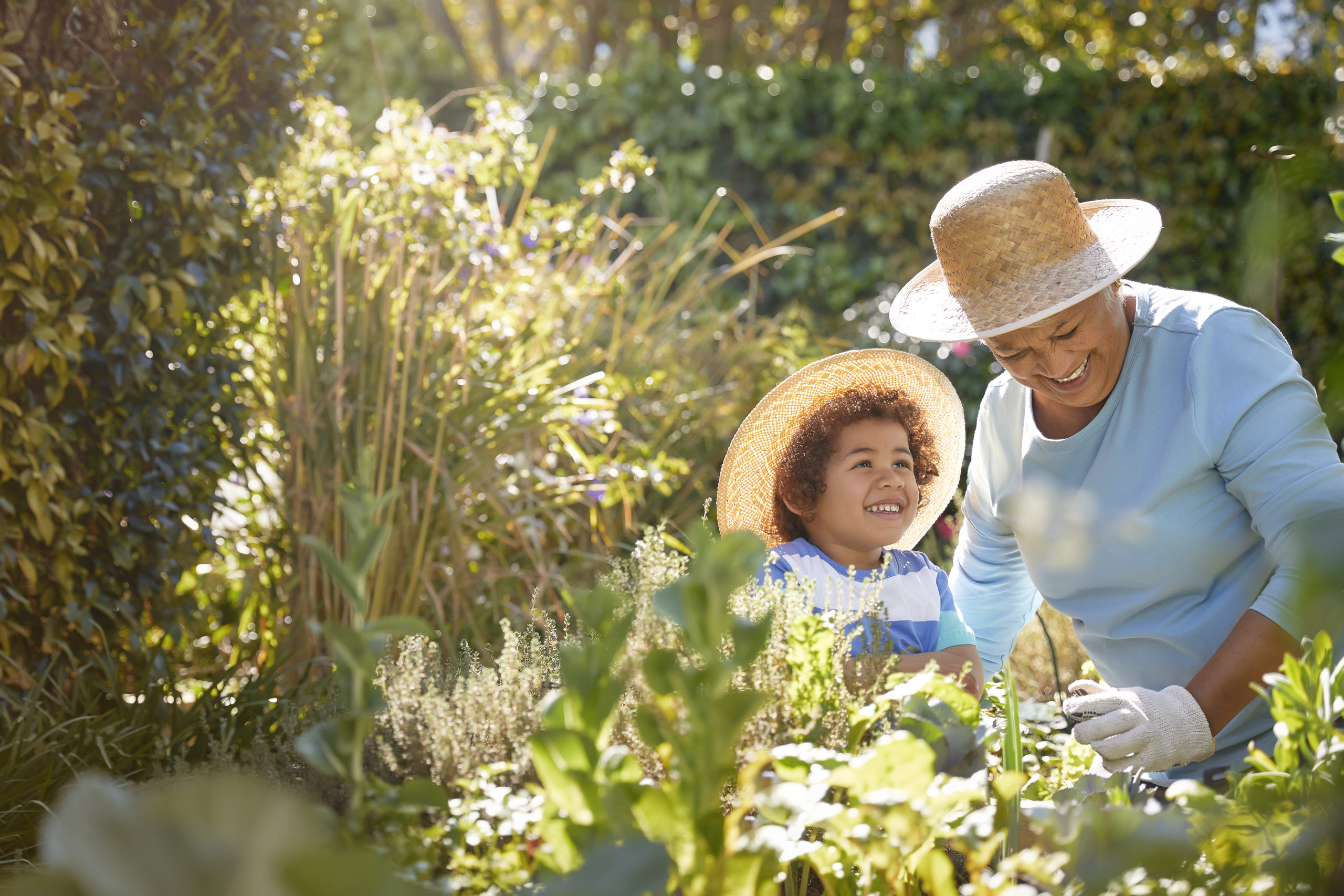
What You Need to Know About Multi-Generational Living in Portland
Multi-generational living has become a lot more popular lately for a couple of big reasons:
- Boomers are aging and downsizing, which often means they move in with their adult kids.
- The COVID-19 pandemic forced many people to need help with childcare due to working from home and remote schooling, and grandparents needed to be a part of a “bubble” to do this.
If you’re getting ready to combine households and embrace multi-generational living in Portland, here are a few things you need to keep in mind:
Look for homes with only one level, a primary suite on the main floor, an ADU, or a duplex. (But keep in mind that homes conducive to multi-generational living can be hard to find.)
Be prepared to search for your ideal home for a while, and be prepared to make some of your own renovations. For example, many people might want one-level living because of mobility issues of older family members. One-level living in Portland is really hard to find (we tend to encourage urban density here, and one-level living discourages urban density… that’s just math!).
Another popular feature to look out for is a home with a primary suite on the main floor. This is hard to find, although it does exist. Finding a home with an ADU on the main floor (or building this yourself) is another great option—grandparents can live in the ADU, while the younger folks live in the “main house” upstairs. Also, finding a duplex where you can live side by side might be the right situation for you.
If you can’t find what you’re looking for, consider building an ADU in the backyard.
This is actually a very good option, and is likely to be a solid long-term answer to multi-generational living that will keep everyone happy. Many grandparents still want some independence, and this can be a great compromise.
Do keep in mind that there are several regulations concerning ADUs in Portland—you can’t just find a property with a big backyard and assume you can build what you want. You need to have the right setback from property lines, for example. You also need to avoid development fees (which can be $1,000s!) by signing an agreement that says you will not be using your ADU as a short-term rental for a certain amount of time. Also, having an ADU will make your taxes go up! Just make sure that you head into this type of situation with eyes wide open (and a real estate agent with hyper-local knowledge and expertise can help you out big time.)
Keep in mind long-term needs.
Typically when people look at homes with multi-generational living in mind, you need to think long-term. Your aging parent might be able to climb up the stairs now, but what about in 10-15 years? It can be hard to anticipate the future, but do your best to look into your crystal ball and consider what your parents’ needs might be like. (Talking to friends with older parents can be really helpful and offer valuable insight to things you might need to take into account.)
Some families combine finances to buy a home together.
Maybe your parents are finally selling the family home, you’re selling your starter home, and you’re all going to buy a house together! This is a completely possible situation and people are doing it more and more often. You just need to make sure you have a real estate agent who can help you navigate all of the moving parts, plus a great lender who will help you figure out the financial possibilities.
If you find a house that needs to be remodeled to suit your multi-generational living needs, you’ll need some cash flow.
As you’re looking for the right property, keep this in mind when you’re considering your budget and price point. Make sure you have enough money leftover for the renovations you need to do. You’ll also need to find a reputable contractor and make sure your shit is permitted! Again, a well-connected realtor will be able to help you make connections to contractors and get you headed in the right direction when it comes to permitting, etc.
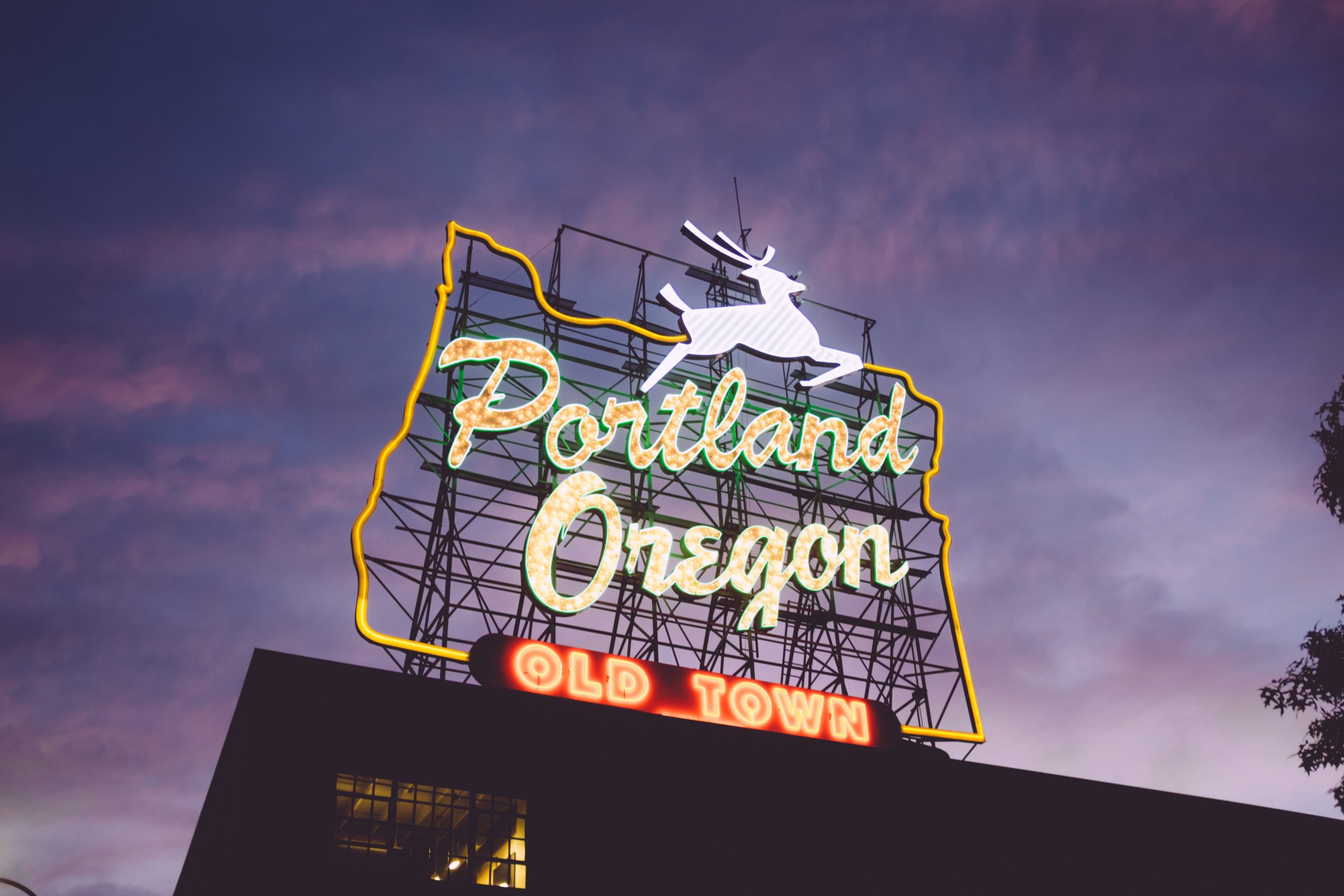
Moving to Portland? Here Are 7 Questions to Ask Yourself
Thinking about moving to Portland, Oregon and buying a home? In order to find the best Portland neighborhood and home for you, I put together this list of questions you’ll want to ask yourself. Considering your personal wants, needs, desires, lifestyle, commute, etc. will all be big factors as you start to narrow down on where you want to live!
If you’re moving to Portland and want to buy a home, here are 7 questions to ask yourself:
Are schools important to you?
If people have kids or are planning to have kids, they always want to know about local schools. “Where are the good schools in Portland? Where are the BEST schools?” The thing is, finding the right or best school for you and your family means something different to everyone. You’ll find lots of helpful info to navigate this in our blog post “How to Find a School in Portland (When You Know School Ratings Are Racist & Classist).”
How important is it to live in a walkable neighborhood?
For some people, it’s super important that they can take a stroll and end up at their favorite coffee shop. Some people want walkable access to food and bars, but maybe they still want to live on a tree-lined street that’s a few blocks away from things. Whether or not a place is “walkable” is going to be a little different for everyone, and in my experience, “walkable” has 2 common definitions: One definition of “walkable” means that you can walk to coffee shops, bars, shops, etc. Another common definition is that there are sidewalks and you can walk your dog. Make sure you define what this means to you!
Where do you work and what does that commute look like?
Do you need your commute to be 10 minutes, or is a 30-minute commute ok for you? Do you want to take public transit, and do you want to take it during COVID-19? Something else to consider is that a house you’re looking at might be on a transit line, but it might involve too many transfers to your workplace to make sense. Another thing to consider is whether you want to ride your bike to work (this is a popular option in Portland). Certain neighborhoods are going to have a ton of hills, and some people hate hills! Looking at a map doesn’t tell you everything, so be sure to take this into consideration.
What is your car situation?
It is absolutely possible to live without a car in Portland. But of course, how reliant you can be on public transit will depend on what neighborhood you live in. Maybe you and your partner have a one car household, and one person uses the car to commute and the other will take public transit. Make sure you think about your lifestyle and how a car factors into that.
What type of house do you want?
Do you prefer early 1900 bungalows? One-level ranches? Modern condos that are practically brand new? The type of home you want to buy will largely determine what Portland neighborhood you will be able to buy a home in. And, Portland’s history and how the city grew has determined what types of houses and architecture you’ll find where.
Portland was originally a lumber town and a big fur trading post in the late 1800s and early 1900s, and because of this, there are some super old houses all around the river. As Portland continued to grow, things spread west and east, then during the 1930s and ‘40s, there were a ton of homes built around the shipyard in neighborhoods like St. John and North Portland.
Also consider whether or not you have the desire to keep up with having an older home. Owning an older home in a very wet climate will take ongoing maintenance—are you ok with constant projects and upkeep? (Homeownership in Portland is like 90% water management!) Or maybe new construction is more your style. Know thyself!
Do you have a pet?
If you have a dog you’ll want a yard, or at least you’ll want to be close to a dog park. Portland is a very dog-friendly city, so you won’t struggle to find things to do with your pup. Check out my blog post “Where To Get Drunk With Your Dog in Portland” for ideas on where to go!
Are you ready for the weather?
I grew up in the area but in my 20s I just couldn’t handle the weather in Portland anymore. It rains a lot and there are many gray days (but we don’t have to worry about snow too often… it snows like maybe once a year on average). Anyway, I moved to Southern California and Mexico for a decade, then I moved back to Portland. It was them that I realized you just need the right gear and you’ll be fine. Get some good waterproof shoes, some cozy sportswear (we have some awesome sportswear brands located in Portland including Columbia), and a natural sunlight lamp and you’ll be good to go.
Partnering with a smart and savvy Portland real estate agent will make all the difference as you decide which neighborhood to live in and what home to buy. I can help you buy a home in Portland—get in touch with me here!
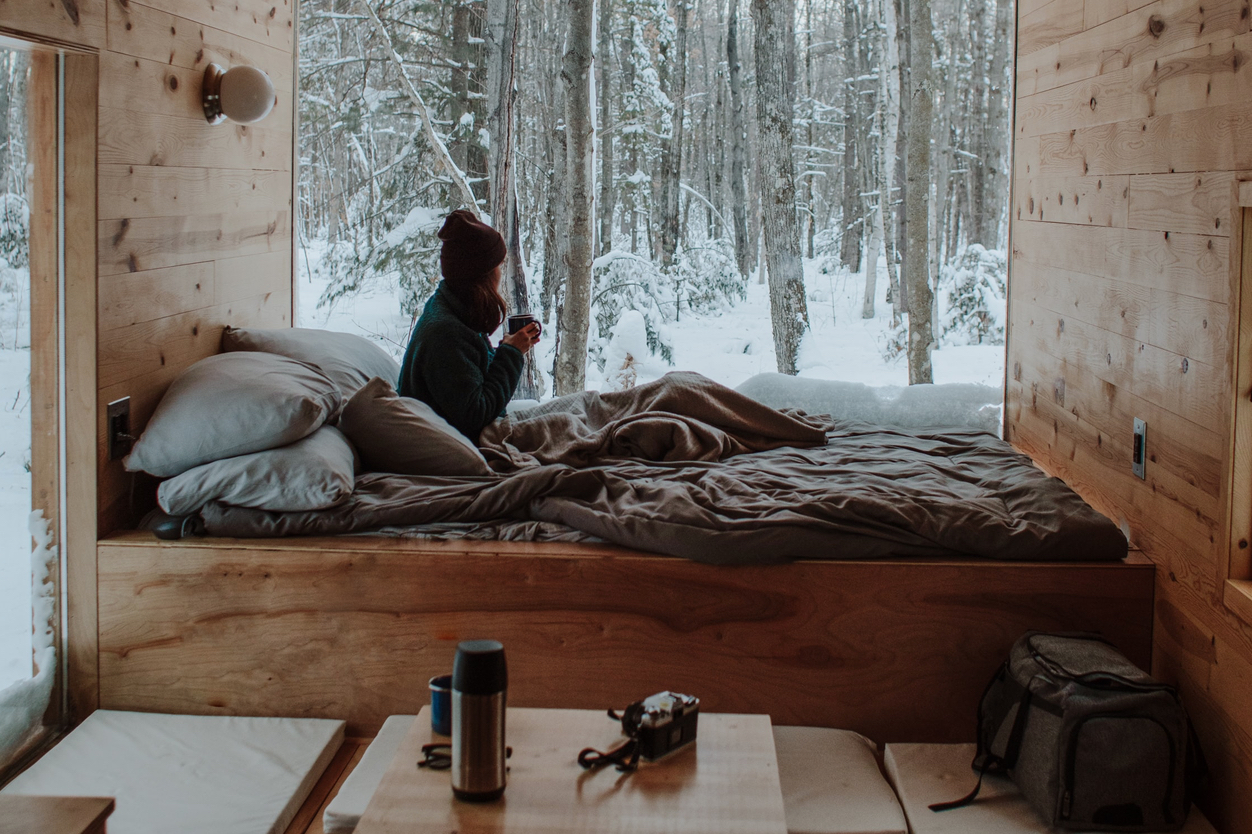
Can I Buy Land in Portland and Put A Tiny House On It?
I get this question ALL the time. Get ready for some real talk!
Let’s just cut to the chase: You’re not going to be able to buy land in Portland and put a tiny house on it.
If you want to do this, you’ll need to be outside Portland’s city limits. And in fact, you’re mostly likely not going to be able to do this in ANY city in Oregon. You’ll very likely need to find specifically rural land if you want to put a tiny home on it.
Here’s another question I get all the time:
Is there a place where I can buy a plat of land in the Greater Portland area that’s within commuting distance to Portland?
Well, unless you have hundreds of thousands of dollars in cash, the answer is no.
Banks don’t want to loan on just raw land. Basically, banks loan money that they feel strongly they’ll be able to get back, and raw land is a bad bet for them. The way they see it is what if you’re going to stop paying a mortgage, you’re going to keep paying the mortgage of the house you actually live in, and stop paying the mortgage of the land you don’t need. And of course, this doesn’t do the bank any good. Therefore, banks rarely loan money on raw land. (There are some builder loans, but they are so specific and restrictive that in this market, they just aren’t usually used.)
Another downside to raw land is that it usually doesn’t have utilities. It’s not going to have water, septic, or electricity, and it’s super expensive to bring all of those things in. There are some pieces of raw land out in the country where these utilities simply aren’t even available. If you do decide to go down this route, you need to do your due diligence and check in with the county to see what you can get.
If you have the cash, you can be prepared to spend at least $150,000 on JUST the land in order for it to be a lot that you can put a tiny home on. There are some lots out there that are like $40,000, but you can’t build on them. And if you have the cash, you need to work with a realtor who knows raw land really well—you can’t just use any old real estate agent unless you wanna get screwed! (I have some great agent recommendations if this is what you want to do—reach out and I’d be happy to connect you.)
On that note, you need an agent who has expertise in raw land and knows what they’re doing. Your agent needs to understand local building codes and laws, and there’s a fair amount of counties that don’t allow you to build something that’s going to be a short-term rental. (Don’t think you’re going to set up a tiny home and make it a cute Airbnb! That probably won’t be allowed!)
Ok, now let’s say you do get a good piece of land. Then you need to buy and/or build the tiny house. When people talk about tiny homes, they’re talking about a 200-square-foot home on wheels. Buying these start at about $60,000, and they still need a water hookup and a way to handle the sewage. However, what I see more commonly is people spend more like $150,000 to $350,000 just for the tiny home. (Check out this resource on Propel Studio about how much it costs to build a custom home.)
If you’ve read all of this and you STILL want to buy land for a tiny home, I can connect you with a local real estate expert with in-depth knowledge on raw land who can guide you through the process. Reach out to me here!
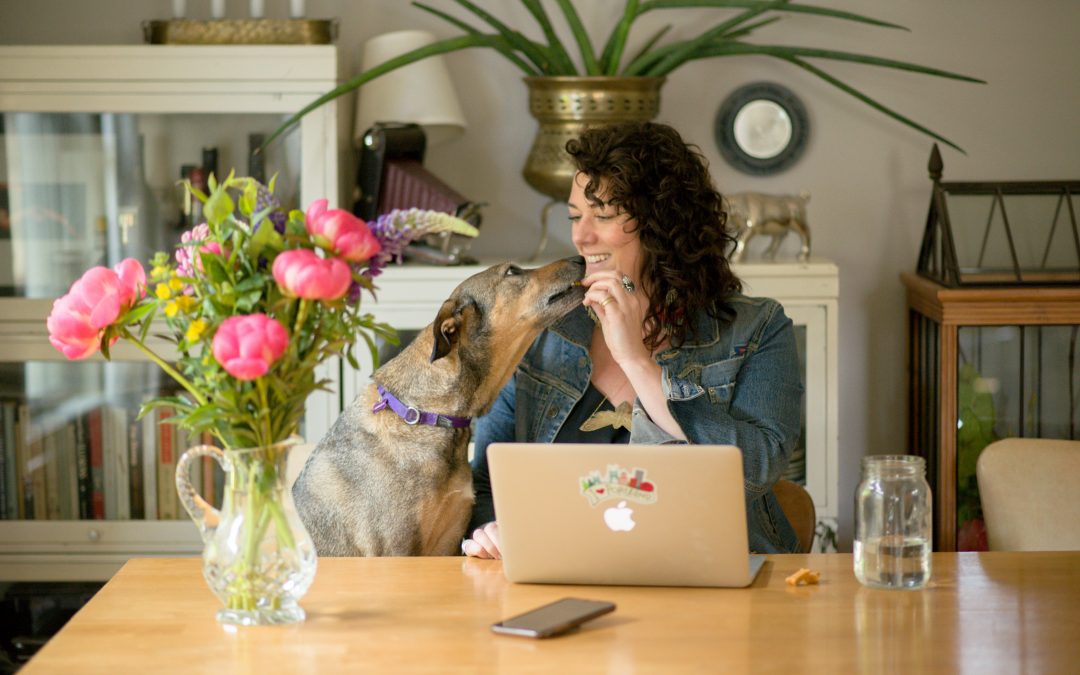
How to Buy a House in Portland When You’re Self Employed
If you’re self-employed and want to buy a house in 2021, you really need to read this before you file your taxes.
Getting a home loan when you’re a self-employed person can be a bit of a tricky combo. And of course, COVID-19 has complicated things even more.
Before we get too far in the weeds in all of this, there are 3 super important takeaways you need to know about right up front:
1. Do NOT make any major purchases right now. Yes, this includes that sexy crushed velvet Joybird sofa that caught your eye. These things can wait until you have the key to your new home.
2. Before you file taxes this year, you really, REALLY need to talk to your lender and/or tax person/accountant. Once you’re done reading this, shoot them an email about your plans. (Seriously. Don’t put this off if you’re serious about buying a home this year.)
3. Typically, advice from seasoned professionals is free. Don’t be afraid to check in with the pros for info on the best course of action, and don’t ever be afraid to seek out a second opinion. (Taking the time to educate yourself now can save you money and heartbreak in the future. It’s worth it.)
***
Now that that’s out of the way, I’m going to walk you through exactly what you need to do if you’re self-employed and want to buy a home this year.
But let me kickstart this with a story.
I was once chatting with a dear friend, and she casually mentioned that she was on the verge of quitting her full-time job and starting a small business. Then she added that she wanted to buy her dream Portland house a few months later.
*record scratch*
I kind of freaked out when I heard this:
“If you quit your job and start a business, you won’t be able to get a home loan as a self-employed professional for a minimum of two years… but because of COVID-19, this is most likely going to be a minimum of five years! If you try to get a mortgage while you’re self-employed, you’d be screwed.”
My friend’s jaw dropped. “Wtf should I do, then?”
“You buy a house in Portland right the fuck now, honey. If you quit your job and strike out on your own right now, you will literally lose your opportunity to be a homeowner this year. Suck it up for a few more months, and let’s find you a home, NOW.”
As you can tell, I have some strong opinions about how to go about being a business owner or an independent contractor and purchasing a house. I work with self-employed people all the time, and as a real estate agent, I’m self-employed myself. It’s the best decision I ever made, and the freedom and creativity that being an entrepreneur allows is unparalleled. That being said, running your own business can have serious drawbacks, and buying a home as a self-employed person is one of them. If you’ve made it this far in reading this you’ve heard a lot of urgency from me, but that’s only because I know how devastating it can be to have to put your dreams on hold for years. But don’t sweat it, you’ve got this!
Here’s what you need to do:
Step 1: Talk to your tax person.
Buying a home while you’re self-employed takes careful planning, foresight, and a smart tax person. You gotta have that taxable income, and a fair amount of it. Let your tax person know that you’re planning on buying a house this year, and they’ll be able to help you figure out what documentation you need, etc.
Aaaand it’s time for another story!
I know of a small business that takes in $200,000/year. However, this most recent year, they wrote off so many expenses that their personal income only shows that they made $12,000 this year. No bank is going to give you a loan if you say you make $12,000/year.
When you’re self-employed on a 1099, you have to make different decisions when you’re buying a house. You need to tell your tax person that you’re planning to buy a house this year, and you might need to not write off as many things this year. Yes, you’ll pay more income tax this way, but you’ll also be more likely to buy a house.
(Now, if you haven’t filed your taxes for a few years or are behind on paying them, that is a whole other can of worms. Believe me, a bank won’t give you a second glance for a home loan if you’ve been lax with your tax.)
Step 2: Talk to a lender to plan well in advance of what you actually plan to buy a home.
You usually need an average of at least two years of taxable income before a lender will even consider giving you a loan to buy a home (and this is why I freaked out on my friend when she was going to quit her job right before she bought her first house).
We all know that those first few years of starting a business can be brutal. And even if you kill it that first year and rake in tons of cash, you still don’t have the two years of self-employed tax history that lenders insist on. You’re right, it doesn’t seem fair, but that’s just the way it is, friends.
And of course, there are additional levels of complications thanks to COVID-19. Here’s what Jen Leon, one of my preferred PDX lenders, has to say about it:
“Every lender at this point in time is looking for a strong profit and loss statement, especially due to COVID. They want to ensure that earnings haven’t taken a backseat comparatively to previous tax returns that are filed. That’s been the biggest hiccup with self-employment – unfortunately every lender is going to use a conservative profit and loss with less income versus a strong tax return from 2019.”
And here’s some wise words from Adesina Cameron, another preferred local lender of mine, who can explain it all better than I can:
“It’s a smart idea for anyone to check in with a lender 2-3 years before they want to buy. But when you’re self employed, it’s critical that you work with a lender to have a plan to qualify for a mortgage. You want your lender and your tax person working together as a team to get you qualified. I often work with CPAs to make sure they understand how I calculate income BEFORE they file. Your CPA can share the draft taxes with your lender to see if letting go of a few deductions is worth it, because the tax savings is minimal, but the increased income is the difference in qualifying or not. During COVID-19, mortgages for the self employed have gotten even tougher. So if you keep sloppy books, or have been procrastinating in doing your 2020 bookkeeping, your lender will give you some encouragement and guidance to get your shit in order before they can pre-approve you.”
Step 3: Don’t write off every single business expense this year.
Your lender is going to be looking at TAXABLE income when they are qualifying you for a loan. The more you write off as expenses, the less your taxable income is. The problem is, when you become your own boss, you’re trying real hard to get every write-off possible in order to lessen your tax liability. As a result, your income will seem very, very low. And when you’re trying to impress your lender with how much you’re earning, you need the opposite to happen. You need your adjusted gross income to be nice and high!
Jen’s got a snippet of sage advice for self-employed folks out there:
“Love my self-employed clients, but I don’t love when they write off every donut purchase at Starbucks.”
Step 4: Pay your taxes.
The only thing guaranteed is death and taxes, right? Well, the taxes part is definitely essential in getting a loan to buy a home. Every single time you get paid, set aside a percentage that you and your tax person have agreed on so when tax time comes around, you’re prepared. This is big Virgo energy, and I promise you, it’s the easiest and least stressful way to go about it.
If you’re behind on your taxes, set up a payment plan with the IRS. Because in a lot of cases, if you’ve jumped through all the other hoops, you can still buy a house if you owe them $$$, just as long as you are currently on a payment plan. (Here’s a cheeky little trade secret for you: That’s how I managed to buy my first home. There are ways, y’all, you just gotta know how to find them, and you gotta plan ahead for them!)
Jen, again:
“The best way to know if you have viable income is to have a lender review your tax returns and assess where income can be bolstered up and used to qualify for a home loan. This is ESPECIALLY critical BEFORE YOU FILE your tax returns to the IRS in a new year! This way, the tax return can be modified and adjusted before the IRS gets it. It may require you to pay more in taxes, but it can also mean homeownership.”
Got questions? Reach out and I’ll talk you through it, and if it’s beyond my expertise as a real estate agent I’ll happily refer you to one of my Portland, OR home loan nerds who can tell you all about getting a mortgage while self-employed.
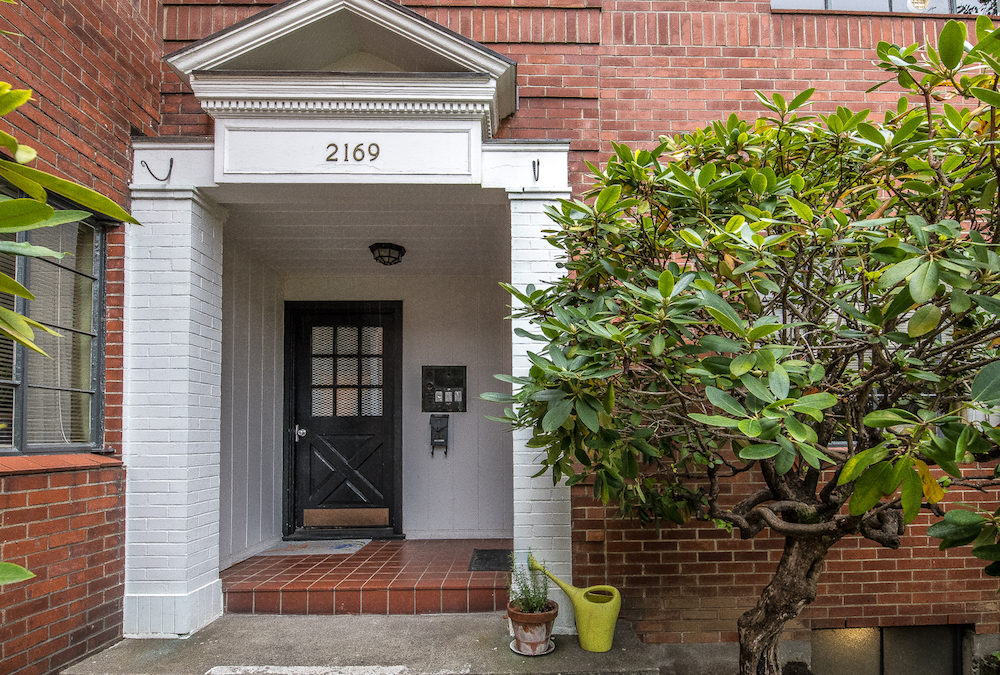
What You Need to Know About Buying & Selling a Condo in Portland in 2021
Condos are a softer market in Portland right now, and there is much less demand for condos as a result of the COVID-19 pandemic.
Of course, people want more space (both inside and out), so that’s a big reason as to why condos aren’t popular right now. But also, people don’t want shared common areas—they don’t want to share an elevator, and may not even be allowed to use amenities like a pool, hot tub, fitness center, etc. If you’re in a condo and paying HOA dues that would normally cover using this stuff and suddenly you can’t safely use any of it, people are wondering what they’re paying for. People also need more room for their home offices, and lots of people also want private outdoor space.
Portlands Overall Median Price vs. Condo Median Price
For a little context, let’s compare Portland’s median sale price for all homes sold in Portland’s metro area to condos.
In December 2019, the median home price for all homes sold in Portland was $405,000. In December 2020, the median home price was at $455,000. The median sale price for homes sold in Portland’s metro area increased by 7.3% from 2019 to 2020.
In December 2019, the median CONDO sale price in Portland was at $323,450. In December 2020, the median condo sale price was at $320,000. This is a 1.1% decrease in price.
If you want to SELL your Portland condo right now, you’ll need to…
- Price it conservatively.
- You MUST have it professionally staged.
- Your condo needs to be marketed extremely well to stand out from the rest.
A good realtor will know how to advise you on pricing and timing, and they’ll be able to market your home right.
To give you more insight into what the condo market is like right now, I recently had a client who wanted to sell their condo in Portland’s Alphabet District and buy a single-family home (like everyone else right now).
They bought their condo in 2016 for $430,000, we listed it for $375,000, and they just sold it in December 2020 for $410,000 with 3 offers.
Even back when they bought their condo in 2016, I advised them that there was a high likelihood that they weren’t going to get their money out of it. So when they called me ready to sell, they knew exactly what to expect because of how I was able to advise them during the buying process. (And of course, whether or not a client heeds their realtor’s advice is of course up to them!)
Long story short, they did not sell their condo for as much as they bought it for, and that’s just how it is right now.
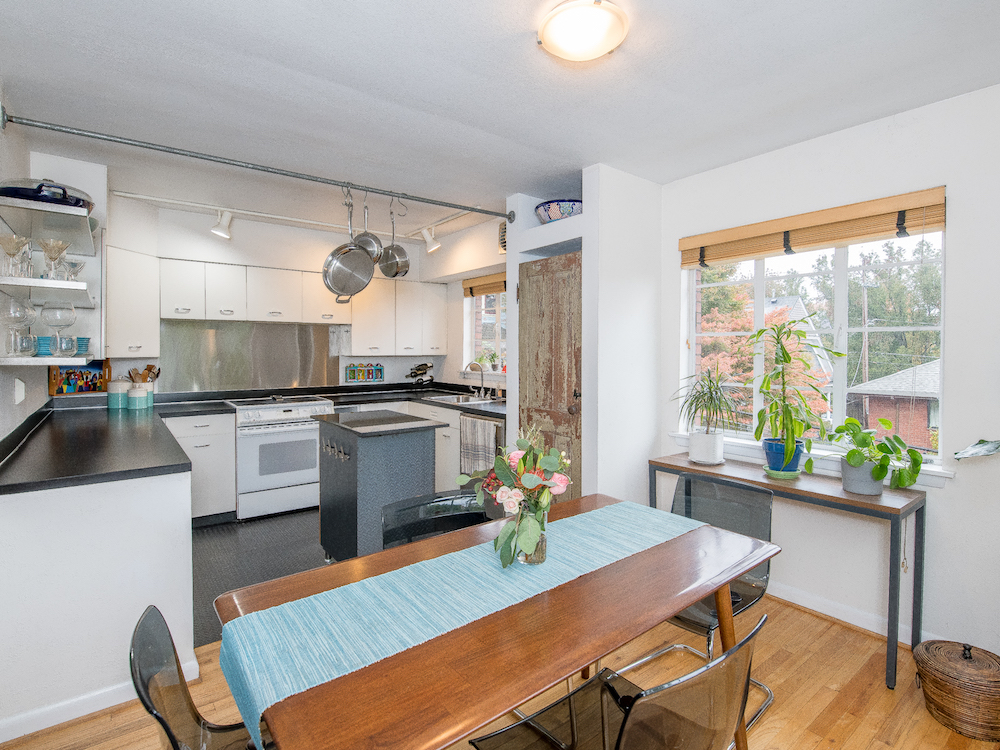
This 937-square-foot condo was purchased for $430k in 2016, was listed for $375k in 2020, and sold for $410k in 2020.
If you want to BUY a condo in Portland right now, you need to know that I cannot recommend it as a pure investment. If you want a secure place to live and that’s why you’re buying a condo that’s fine, but do not expect to buy it purely as a GOOD investment that will appreciate over time, and don’t count on a Portland condo to appreciation the way single-family housing is right now.
In huge cities, sometimes condos are all you can get so it’s fine, but not so much in Portland. Condos are often in our more urban areas, and in non-COVID times people want to live in denser neighborhoods because of all the amenities they get access to (live shows, bars, restaurants, shopping, gyms, etc.). Right now if you’re in one of these areas, you’re paying for conveniences that you don’t get to actually enjoy.
However, you CAN get a teeny tiny condo for like $250,000, and there’s not a chance in the world you can buy anything within an hour of Portland for that little. So if that’s your budget and you’re just looking to buy a place where you can build equity, that might be an option.
Have a question about Portland real estate? I’m here to help. Get in touch!
Curious to learn about buying a single-family home in Portland? Here’s what you need to know in 2021!
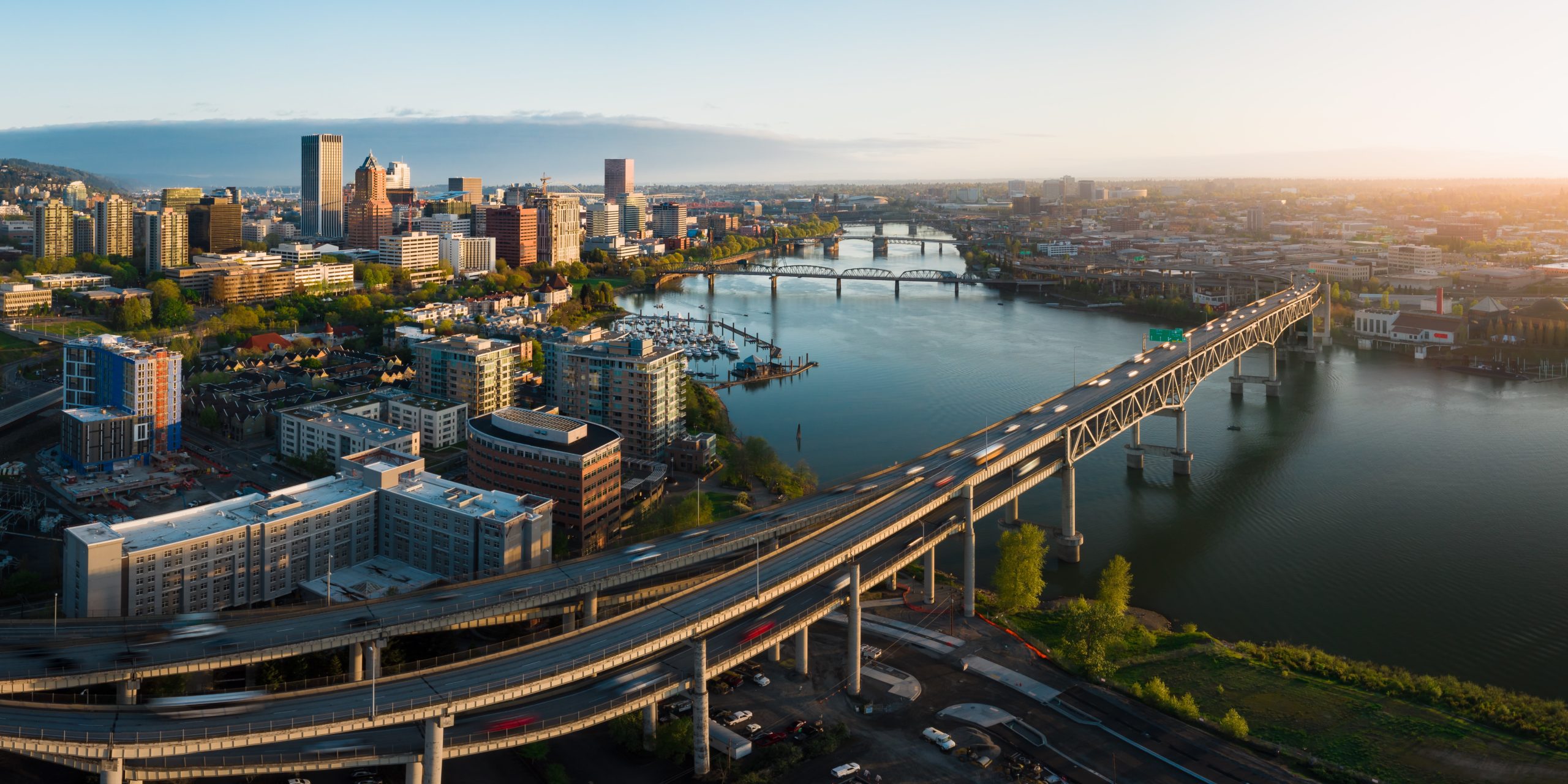
Portland’s Median Sale Price Went Up by 7.3% in 2020. Here’s What Buyers & Sellers Need to Know.
2020 turned our world upside down, and the COVID-19 pandemic brought its own unique challenges to Portland’s real estate market.
The median sale price for homes sold in Portland’s metro area increased by 7.3% from 2019 to 2020. In December 2019, the median home price was $405,000. In December 2020, the median home price was at $455,000.
There are a few major trends that emerged:
- Many city dwellers sold their condos in search of more space (aka they wanted to buy single-family homes).
- Owners of single-family homes often discovered they needed more space both inside and out, and people left the city in search of more land + more square footage.
- Work from home is here to stay. Many people who have been wanting to move to Portland finally can, because they can work from anywhere and their employer’s location was the only thing holding them back.
- Competition for single-family homes increased even more. If you want to buy a house in Portland, expect a bidding war.
What You Need to Know About Buying & Selling a Single-Family Home in Portland
Homes in Portland are selling like hotcakes. Everyone wants a single-family home these days.
If you want to buy a house in Portland, it’s going to be hard. Housing inventory is still at historic lows in Portland. You’ll be competing with lots of other buyers who want the same thing that you do (which is usually more space both inside and out), and you can expect the home you’ve just made an offer on to receive many other offers (with $$$ well above the list price).
This means that it’s more important than ever to prepare. You need to be working with an experienced real estate agent who is an expert in the neighborhood you want to buy in. They will be able to give you savvy advice on financing (which you need to get squared away immediately), advise you on whether or not a property is a smart investment, and of course, craft you a winning offer. (Also, as a buyer, you just reeeeeally cannot have contingencies right now if you want to win! A contingency could include many things, including needing to sell your home before you can buy one. Your realtor will be able to advise you on all of this.)
Let’s look at one of my latest home listings as an example of what’s going on in the housing market:
I listed this 2-bedroom, 1-bath bungalow in Portland’s Kenton neighborhood in December 2020 for $395,000. This 1,016-square-foot home ended up receiving 9 offers, and it sold for $475,000, with a final closing date in January 2021.
The winning offer was selected for a few reasons—they didn’t want any repairs, they worked with a reputable lender we knew we would count on, and it was the most money. (However, the most money doesn’t always win—you’ve got to have a solid deal all around.)
Bonus tip: In this market, if a house has been listed for more than 7 days and hasn’t gone pending, something’s up. It’s either not priced right or not marketed well, and it could also be a red flag that the house will be just as hard to sell in the future.
If you want to sell your house in Portland, keep in mind that just because it’s a hot market right now, your home is not guaranteed to inspire a bidding war. You still need to do your due diligence, and this means working with a real estate agent who knows their stuff. You must stage your home (it can be the difference between only receiving 3 offers and receiving 9, and more offers usually translates to more $$$).
You might also be wondering, if it’s so hard to buy a house in Portland right now, where are these people who are selling their homes going to go? Usually these sellers are “moving up” and using their equity to buy a bigger/more expensive home, or, like everyone else right now, they want more square footage + land and are moving out of the city to the suburbs.
Want to know about buying or selling a condo in Portland right now? Click here!
Ready to buy or sell your house in Portland! Get in touch with me here.
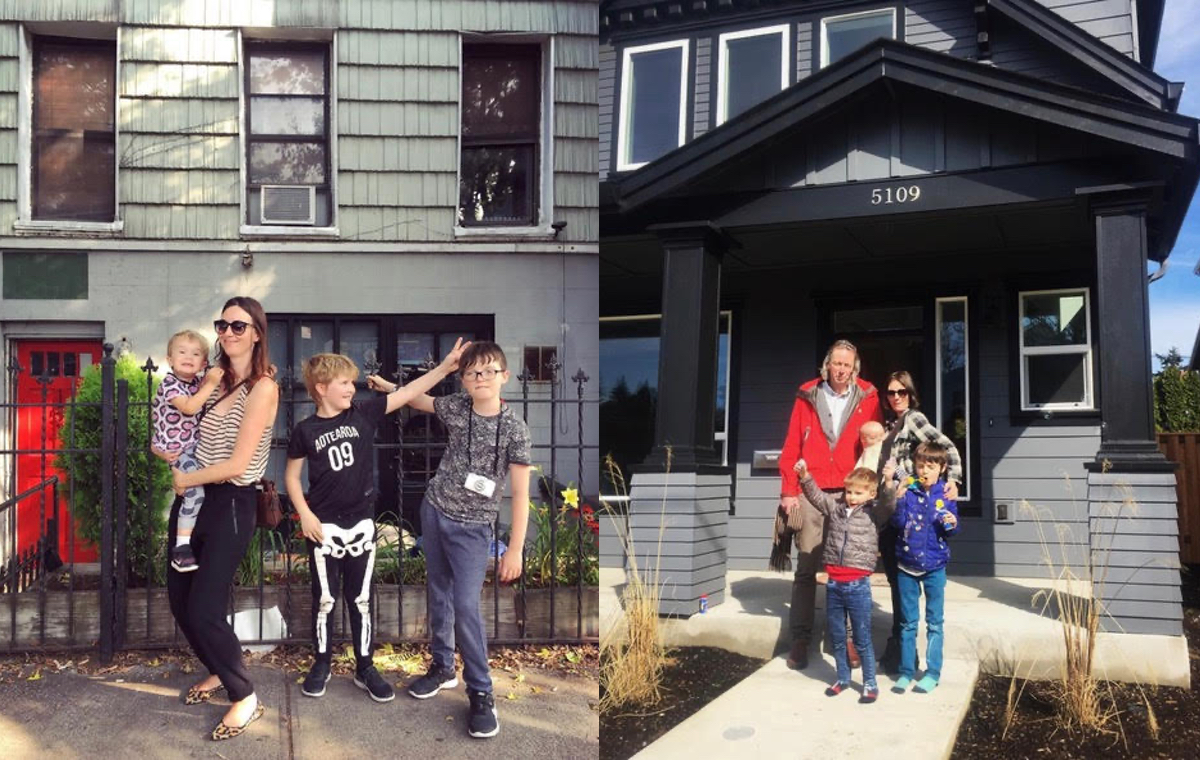
Why We Moved from NYC and Bought a House in Portland, Oregon
First thing’s first: I adore Kate Coats and she is an important person in my life. I feel so SO lucky that I got to meet her and her family AND help them move to Portland!
Since this was a long distance move for Kate and her family, I actually didn’t even meet her in person until she showed up to get the keys to her home from me. This was also literally the first time she had seen her new house in real life! The minute I met her, I forced her to be my friend, and we are! 😉
Anyway, enough about that! Why did Kate and her family decide to move across the entire country from Brooklyn to Portland? I asked Kate all about her family’s big move, from why they decided to move to how their life in Portland compares to life in Brooklyn. A lot of it boils down to affordability, space, and having more outdoor access, but I’ll let Kate explain now!
Q: Why did you move from NYC to Portland? (What made you decide to leave NYC? Why did you choose Portland specifically?)
Kate: We left NYC for a number of reasons. I adore New York but we knew we wanted to buy a house and the options in our price range in Brooklyn were just heartbreaking. I also work remotely and Matt’s work is travel based anyway, so it didn’t make much sense to keep our home-base in such an expensive city. We also wanted more greenery, wilderness and nature available to us, it broke my heart that the kids school playground was just a concrete block and they shared it with three other schools!
I would have loved to have moved to Europe from NY (I’m a Brit) but my husband was keen to give another American state a try first. We gave the Bay Area a shot for a couple of years but it was not for us! I spent time in New Zealand as a kid and have always loved it and when I read that Oregon and NZ had similarities, we figured we would give it a shot. I had not visited Oregon until after our house had closed.

Hanging out recently in the front yard.
Q: What was your living situation in NYC (did you rent, own, etc.)? What is your living situation in Portland?
Kate: We had a house in Greenpoint, Brooklyn. We rented. It’s pretty rare to find a full house for rent in NY but when we returned from California with two kids we knew we couldn’t return to apartment life. Our house was 3 stories with a tiny (TINY) front and back concrete yard space. It had a commercial space on the ground floor which we used as an office and general storage. The house itself was a 2-3 bedroom depending on how you cut it. We loved it! And my youngest was born in the house in a pool in the living room. 🙂
Living expenses are pretty much the same here honestly. Slightly lower, and we’re able to buy into the market which is really the impossible thing in NY. Our rent was around $3,000 a month for the residential space and $1,000 for the commercial. We pay around $3,000 for our mortgage now. We drive more here, school costs, and general life costs are comparable.

Last summer we returned to NY and took this snap out front of our old spot. We painted the door red when we moved in and I’m happy they kept it!
Q: Had you visited Portland before you decided to move here? (If so, how/when did you “know” Portland was for you?)
Kate: Nope! Matt did come out once with our middle kid to meet up with Lauren and take a look at some places. I don’t know that there’s ever a “know it’s for me” moment. I’m still deciding. Haha.

When we arrived at our new house! This is me, my three boys and my dad who helped us move. Matt is driving a truck across the country at this point.
Q: How did you decide which neighborhood in Portland to live in? (Which neighborhood in Portland do you live in, and what do you love about it?)
Kate: Basically we just picked a neighborhood that had a decent school, was walkable, not too far out and we could afford a house in. We didn’t have much knowledge to draw on so we relied heavily on Lauren and we honestly lucked out with our hood, it’s cute and quiet. We like it.

Hanging out recently in the front yard.
Q: How does your current neighborhood compare to the neighborhood you left in NYC?
Kate: Brooklyn is probably one of my favorite places in the world, so it’s hard to compare. But what we have here is just completely different. Here, we have quiet and space and soft comfort. Brooklyn was buzzing, chaotic and creative. I do have to say that I feel Portland struggles far more with homelessness and general street safety, which is surprising to me.
Q: How do you feel about affordability/cost of living in NYC vs. Portland? (Did your lifestyle change when you moved? Could you afford more/feel more comfortable/etc.?)
Kate: Honestly, no. I guess we go out less here because there’s less to go do. Hahah. Which does save money. We certainly could never have afforded to buy a 3-bedroom house with a yard in our old neighborhood. Ever. But in terms of daily living costs, it’s mostly the same.
Thank you so much for sharing all of this great info, Kate!!
Are you ready to pack your bags and leave the big city life for greener (and larger) pastures? Your Local Portland Guide Lauren Goché is ready to help you buy a home in Portland. Get in touch with Lauren here. (She promises not to be a weirdo. Well. Toooo much of a weirdo.).

